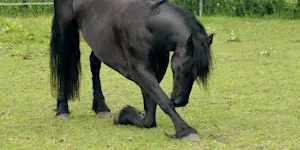What Makes This Word Tick
Estivate is a fancy way of saying someone or something is taking a summer nap. It’s like hibernation but for the warm months when certain creatures prefer to avoid the heat and dry spells by taking a long siesta.
If Estivate Were a Person…
Imagine estivate as a sunhat-wearing retiree, lounging by the pool and sipping lemonade, avoiding the midday sun until the temperatures drop. Content to slow down and enjoy the lull of summer’s warmth.
How This Word Has Changed Over Time
Originating from the Latin "aestivare," meaning "to spend the summer," estivate maintains its roots firmly in the notion of summer idleness. The usage hasn’t wandered much through the years—those who estivate still look for cooler, calmer refuges in the heat.
Old Sayings and Proverbs That Use Estivate
You won’t find this ten-dollar word tucked into dusty proverbs; it’s more of a scientific term. But in spirit, it partners well with adages like “make hay while the sun shines,” though estivating creatures would prefer to nap in the shade.
Surprising Facts About Estivate
Not just for animals, the term can apply to plants too. Certain plants will estivate their growth during the hottest months to conserve water. It’s nature’s mutual understanding to chill out when temperatures rise.
Out and About With This Word
Estivate is at home in biology textbooks and wildlife documentaries, especially when describing amphibians or insects that seek cool dirt burrows to hide from summer's swelter. It makes a rare cameo in casual conversation unless you're chatting with a naturalist.
Pop Culture Moments Where Estivate Was Used
Estivate might not pop up in pop songs or blockbuster scripts, but it’s a word that describes every introverted teen’s summer plans who prefers the shade with a good book rather than the beach volleyball court.
The Word in Literature
While not a regular feature in mainstream novels, estivate can be expected in journals of naturalists or detailed descriptions of wildlife behavior. An elegant choice for authors who enjoy embedding scientific vocabulary in their lush, descriptive passages.
Moments in History with Estivate
One can imagine early explorers in arid lands taking lessons from local fauna, noting which creatures estivated as a guide to surviving blistering climates themselves—an unspoken camaraderie across species.
This Word Around the World
Estivation has analogs in various languages, often tying back to biological behaviors associated with warmth. In Spanish, you might hear "estivación" to describe the same phenomenon, blending seamlessly with local nature talk.
Where Does It Come From?
Derived from Latin "aestīvāre," you can trace estivate back to "aestīvus," relating to summer. It's been comfortably lounging in the English lexicon since the mid-17th century without much stir or sensation.
How People Misuse This Word
Occasionally, estivate gets mixed up with general summer activities. But true estivation involves not just enjoying the weather, but strategically avoiding its extremes, a bit more than just a day in the hammock.
Words It’s Often Confused With
Hibernate: Both relate to seasonal dormancy, but hibernate is for winter.
Vacation: Estivation isn't a vacation; it’s a survival strategy against the heat.
Loaf: While similar in leisure, loafing lacks the biological necessity found in estivation.
Additional Synonyms and Antonyms
Other words like "dormant" or "slumber" share some common ground, while "active" and "energetic" serve as natural antonyms to estivate’s laid-back disposition.
Want to Try It Out in a Sentence?
"During particularly hot summers, the frogs would estivate in the moist, cool soil until the rains returned and filled their ponds."
















